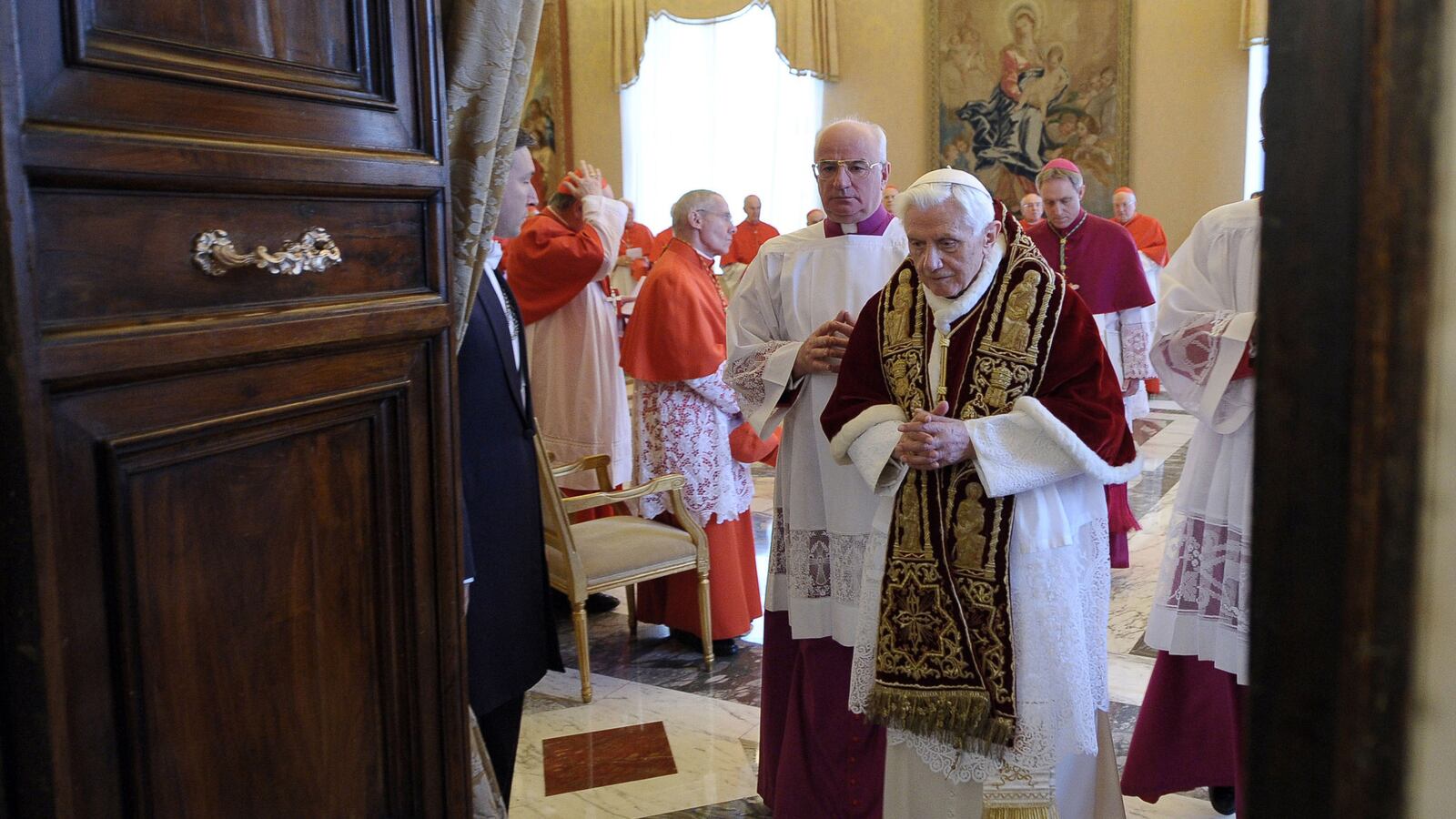Lest there be any doubt, the Vatican can still keep a secret.
On Monday morning Pope Benedict XVI surprised the world when he announced that he would be resigning from the papacy effective at 8 p.m. February 28. “After having repeatedly examined my conscience before God, I have come to the certainty that my strengths, due to an advanced age, are no longer suited to an adequate exercise of the Petrine ministry,” he said on Vatican Radio. No one, it seemed, saw it coming, although Rome was immediately abuzz with activity.

But as Romans headed to Saint Peter’s Square to buy up Benedict XVI paraphernalia and journalists chased bishops and cardinals to decipher what it all means, the hierarchy of the Holy See buttoned up, no doubt already lobbying behind the scenes to put their preferred cardinal forward as Benedict’s replacement.
In many ways, by resigning instead of allowing nature to take its course, Pope Benedict XVI has ensured a very different legacy from the scandal-laden one he would have left had he died like his predecessor, John Paul II. This is a papacy that has borne the brunt of a decades-old church pedophile scandal in which Benedict has been criticized for not doing enough. Nicknamed God’s Rottweiler, he has also brought some scorn on himself, criticizing the Prophet Muhammad’s teachings as “evil and inhuman” and positioning himself as a staunch critic of homosexuality, calling gay and lesbian unions the potential “self-destruction of the human race.”
The Vatican under Benedict was also deeply dented when the pope’s butler Paolo Gabriele was convicted of stealing private papers and leaking them to the press. The documents, which were published in the bestselling book His Holiness, hinted at a divided church in which Benedict XVI seemed either oblivious or unwilling to make tough decisions. By resigning, he has just avoided the potential criticism that comes with public papal funerals and hours of nonstop televised commentary on his legacy. As it stands, he will stay in office until the end of the month, enjoying the respect that his office requires.
He will also avoid the dreaded papal death watch, which he witnessed firsthand when his predecessor, John Paul II, died in 2005 after the world had watched his decline due to Parkinson’s disease. He can also ensure some control over who replaces him. His spokesman, Father Federico Lombardi, said Benedict XVI would not be directly involved in choosing his predecessor—he is too old to vote. But he could wield influence in other less-direct ways.
But, of course, there is hardly a precedent here. The last time a pope resigned was in 1415, under much different circumstances. This time, the church will have to make up the rules as it goes along.




